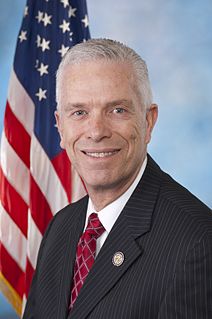A Quote by Swami Vivekananda
The varieties of religious belief are an advantage, since all faiths are good, so far as they encourage us to lead a religious life. The more sects there are, the more opportunities there are for making a successful appeal to the divine instinct in all of us.
Related Quotes
You have to be closer to religious origins -- the generation of the 20's was truly secular in that it still knew its theology and its varieties of religious experience. We are post-secular, inventing new faiths, without any sense of organizing truths. The truths we accept are so multiple that honesty becomes little more than a strategy by which you manage your tendencies toward duplicity.
In religious and in secular affairs, the more fervent beliefs attract followers. If you are a moderate in any respect - if you're a moderate on abortion, if you're a moderate on gun control, or if you're a moderate in your religious faith - it doesn't evolve into a crusade where you're either right or wrong, good or bad, with us or against us.
Who does not see that we are likely to ascertain the distinctive significance of religious melancholy and happiness, or of religious trances, far better by comparing them as conscientiously as we can with other varieties of melancholy, happiness, and trance, than by refusing to consider their place in any more general series, and treating them as if they were outside of nature's order altogether?
My belief is that the various religious traditions have great potential to increase compassion, the sense of caring for one another, and the spirit of reconciliation. However, I believe that a human being, without religious faith, can be a very good person - sincere, a good heart, having a sense of concern for others - without belief in a particular religious faith.
Who is telling us about the false self today? Who is even equipped tell us? Many clergy have not figured this out for themselves, since even ministry can be a career decision or an attraction to "religion" more than the result of an encounter with God or themselves. Formal religious status can maintain the false self rather effectively, especially if there are a lot of social payoffs like special respect, titles, salaries, a good self image, or nice costumes. It is no accident that the religious "Pharisees" became the symbolic bad guys in the Jesus story.
There are two forms of disappointment that interest me: religious and political disappointment. Religious disappointment flows from the realization that religious belief is not an option for us. Political disappointment flows from the fact that there is injustice - that we live in a world that is radically unjust and violent, where might seems to equal right, where the poor are exploited by the rich, etc.
All my life I have made it a rule never to permit a religious man or woman take for granted that his or her religious beliefs deserved more consideration than non-religious beliefs or anti-religious ones. I never agree with that foolish statement that I ought to respect the views of others when I believe them to be wrong.
We all agree that neither the Government nor political parties ought to interfere with religious sects. It is equally true that religious sects ought not to interfere with the Government or with political parties. We believe that the cause of good government and the cause of religion both suffer by all such interference.
Until the content of a belief is made clear, the appeal to accept the belief on faith is beside the point, for one would not know what one has accepted. The request for the meaning of a religious belief is logically prior to the question of accepting that belief on faith or to the question of whether that belief constitutes knowledge.
In so far as divine love beautifies our souls. And makes us pleasing to His divine Majesty, it is called grace; in so far as it gives us strength to do good, it is called charity; but when it reaches such a degree of perfection, that it makes us not only do the good, but do so carefully, frequently and readily, then it is called devotion.
Religion that is imposed upon its recipients turns out to engender either indifference or resentment. Most American religious leaders have recognized that persuasion is far more powerful than coercion when it comes to promoting one's religious views. . . . Not surprisingly, then, large numbers of religious leaders have supported the Supreme Court in its prayer decisions.






































